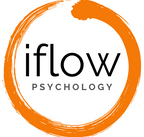It is a well-known fact that sleep plays a crucial role in maintaining good physical health. However, what many people may not realize is that sleep also has a significant impact on mental health. Research has shown that there is a strong connection between sleep and mental health, with poor sleep patterns often being linked to various mental health disorders.
Sleep is essential for our bodies to rest and recharge, and the same goes for our minds. Our brains go through various stages of sleep throughout the night, each serving different functions. During REM sleep, our brains process emotions and memories, which is essential for our mental well-being. When we do not get enough sleep or experience disturbances in our sleep patterns, it can have a negative impact on our mental health.
One of the most common mental health disorders associated with poor sleep is depression. Studies have shown that people with insomnia are more likely to develop depression, and individuals with depression often suffer from insomnia. This relationship between sleep and depression is bidirectional, with one condition exacerbating the other. This is where relationship counselling can come into play, as it can help individuals address the underlying issues contributing to both their sleep disturbances and mental health struggles.
Anxiety is another mental health disorder that is closely tied to sleep. People with anxiety often have trouble falling asleep or staying asleep due to racing thoughts and worries. This lack of sleep can then exacerbate feelings of anxiety, creating a vicious cycle. Relationship counselling can help individuals learn coping mechanisms to manage their anxiety and improve their sleep quality.
Bipolar disorder is another mental health condition that is impacted by sleep. People with bipolar disorder often experience disruptions in their sleep patterns, with episodes of mania or depression affecting their ability to get a good night’s rest. Relationship counselling can provide support and guidance for individuals with bipolar disorder to help them establish healthy sleep habits and manage their symptoms effectively.
It is clear that the connection between sleep and mental health is a strong one, with poor sleep patterns often contributing to the development and exacerbation of various mental health disorders. Relationship counselling can be a useful tool for individuals struggling with both sleep disturbances and mental health issues, as it can help them address the underlying issues and develop strategies for improving their overall well-being.
In conclusion, it is essential to prioritize sleep as a crucial component of mental health. By addressing sleep disturbances and implementing healthy sleep habits, individuals can improve their mental well-being and overall quality of life. Working with a relationship counsellor can be an effective way to address the connection between sleep and mental health and develop strategies for better sleep and improved mental well-being.
************
Want to get more details?
iflow Psychology
https://www.iflowpsychology.com.au/
0431564257
48 Norton Street Leichhardt NSW 2040 AUSTRALIA
Welcome to iflow Psychology, your trusted and reliable psychology clinic in the Inner West suburb of Leichhardt, Sydney. We offer confidential and culturally sensitive in-person psychological services that cater to all your mental health and well-being needs. We are committed to providing quality services that will help you achieve your goals and lead a fulfilling life. We also offer telehealth and telephone psychology services to ensure that you have access to our services no matter where you are located in NSW.
Our experienced psychologists provide a range of mental health treatments that cater to your individual needs. Whether you need a mental health assessment, are experiencing signs and symptoms of mental health issues, or need relationship counselling, we are here to help.

